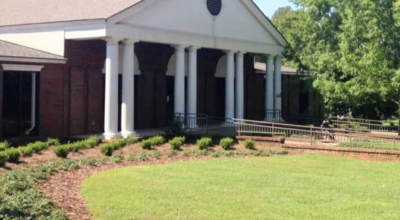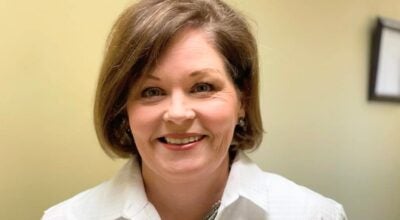Local volunteers give out food to families in need
Published 12:56 pm Wednesday, December 23, 2020
|
Getting your Trinity Audio player ready...
|
Local families in need are being blessed with much-needed food thanks to a partnership among locals and financial assistance from the USDA.
As part of President Trump and Secretary Perdue’s April 17th announcement of a $19 billion Coronavirus Food Assistance Program, United States Department of Agriculture announced on April 19 that it is exercising authority under the Families First Coronavirus Response Act to purchase and distribute up to $3 billion of agricultural products to those in need.
USDA partnered with regional and local distributors, whose workforce has been significantly impacted by the closure of many restaurants, hotels, and other food service entities, to purchase $3 billion in fresh produce, dairy, and meat products. USDA’s Agricultural Marketing Service (AMS) procured an estimated $100 million per month in fresh fruits and vegetables, $100 million per month in a variety of dairy products and $100 million per month in meat products to provide a pre-approved box of fresh produce, dairy, and meat products to food banks and other non-profits serving Americans in need.
USDA issued a solicitation to invite proposals from offerors to supply commodity boxes to non-profit organizations, identified by the offeror, on a mutually agreeable, recurring schedule. USDA will award contracts for the purchase of the agricultural products, the assembly of commodity boxes and delivery to identified non-profit organizations that can receive, store and distribute food items.
The Blackbelt Community Foundation, Warrior Ministries and the Greenville Area Chamber of Commerce partnered with USDA to facilitate the delivery of more than 2,400 boxes weekly of fresh fruit and vegetables, dairy and meat in Greenville and Butler County as part of the USDA Farmers to Families Food Box Program.
“During the month of October, which was round one of the program, food box deliveries were set up at a location site in Greenville and in Georgiana with more than 1,200 boxes distributed at each location weekly for 5 consecutive weeks,” Tracy Salter, Executive Director for the Greenville Area Chamber of Commerce said. “Thanks to Evangelist Carolyn Griffin’s efforts and hard work, we were fortunate to be included in round two of the food box program and starting on Nov. 17 through Dec. 29, the deliveries will alternate weekly between Greenville and Georgiana – rotating bi-weekly.”
“I am grateful to have been given the opportunity to work with the Black Belt Community Foundation during the 2020 year,” said Carolyn Griffin, Evangelist for Warrior Ministries. “This has opened doors for me to work with them on other projects, like the USDA Farms to Families Food Box Program. Partnering with the GACOC, Ms. Gloria Crosby of the Long Creek Missionary Baptist Church, and all of the others that have been mentioned, has truly been a blessing for Warrior Ministries. Most importantly, we have worked together in Butler County, for the good of our community,” said Griffin.
“The delivery and distribution of this much food requires a lot of help from volunteers and community leaders,” said Salter. “This is the first time the Chamber has been a part of a food distribution project and it has truly been one of the most rewarding experiences I’ve ever been a part of. Not only has the program provided a lot of good food to citizens in our community, a lot of city and county leaders, businesses and all around amazing people have come together to make this happen.”
In order to facilitate and streamline the distribution, Griffin and Salter have partnered with local churches, ministries, and other non-profit organizations to distribute the food boxes throughout the community.
“We are so grateful to the local Churches, Ministries, Non-profit organizations, Businesses, and Individuals that have joined forces with us on the project to distribute the food boxes throughout the community through pickup and delivery,” said Salter. “Each of the organizations involved have a network of families and individuals in place that allow a seamless distribution process – either by way of pickup or delivery.”





